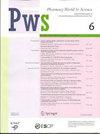ENVIRONMENTAL POLLUTION AND IMPACT OF HIGHWAYS DURING OPERATION
引用次数: 0
Abstract
The current state and rapid development of road construction and transport infrastructure are the reasons for the increase in environmental pollution, especially in the immediate vicinity of highways. Roadside areas accumulate a large amount of pollutants which leads to changes in soil properties and comprehensive degradation of landscapes. Together with the road runoff, pollutants enter the lakes and the rivers and cause significant damage to aquatic flora and fauna. During the operation of highways, a large amount of exhaust gases, oil products, heavy metals, and dust enters the natural environment. Currently, in Ukraine, most studies are aimed at reducing the negative impact of exhaust gases on the atmosphere, oil pollution of soils and the aquatic environment. Unlike in the European countries, the research on the formation of microparticles which, together with dust and surface runoff contaminate soils, surface and groundwater of roadside areas has not been conducted at all. This paper analyzes the European research experience on the negative impact of microparticles on the environment. The components of microparticles - micropollutants formed as a result of the interaction of vehicles with the road surface (tire wear products, road dust, road markings, etc.) are presented. The paper also presents the sources of formation, qualitative and quantitative characteristics of the main micropollutants and their pathways in the roadside area. This will allow further developing the effective measures to reduce the formation and spread of micr公路运行期间对环境的污染和影响
道路建设和交通基础设施的现状和快速发展是环境污染加剧的原因,特别是在公路附近。路边积聚了大量污染物,导致土壤性质的变化和景观的全面退化。污染物与道路径流一起进入湖泊和河流,对水生动植物造成重大损害。高速公路在运行过程中,大量的废气、油品、重金属、粉尘等进入自然环境。目前,在乌克兰,大多数研究的目的是减少废气对大气、土壤和水生环境的石油污染的负面影响。与欧洲国家不同,中国根本没有对微粒的形成进行研究,这些微粒与灰尘和地表径流一起污染路边地区的土壤、地表水和地下水。本文分析了欧洲关于微粒对环境的负面影响的研究经验。微粒的组成-微污染物形成的结果,车辆与路面(轮胎磨损产品,道路灰尘,道路标志等)的相互作用。本文还介绍了路边区主要微污染物的形成来源、定性和定量特征及其途径。这将有助于进一步制定有效措施,减少微生物的形成和扩散
本文章由计算机程序翻译,如有差异,请以英文原文为准。
求助全文
约1分钟内获得全文
求助全文

 求助内容:
求助内容: 应助结果提醒方式:
应助结果提醒方式:


